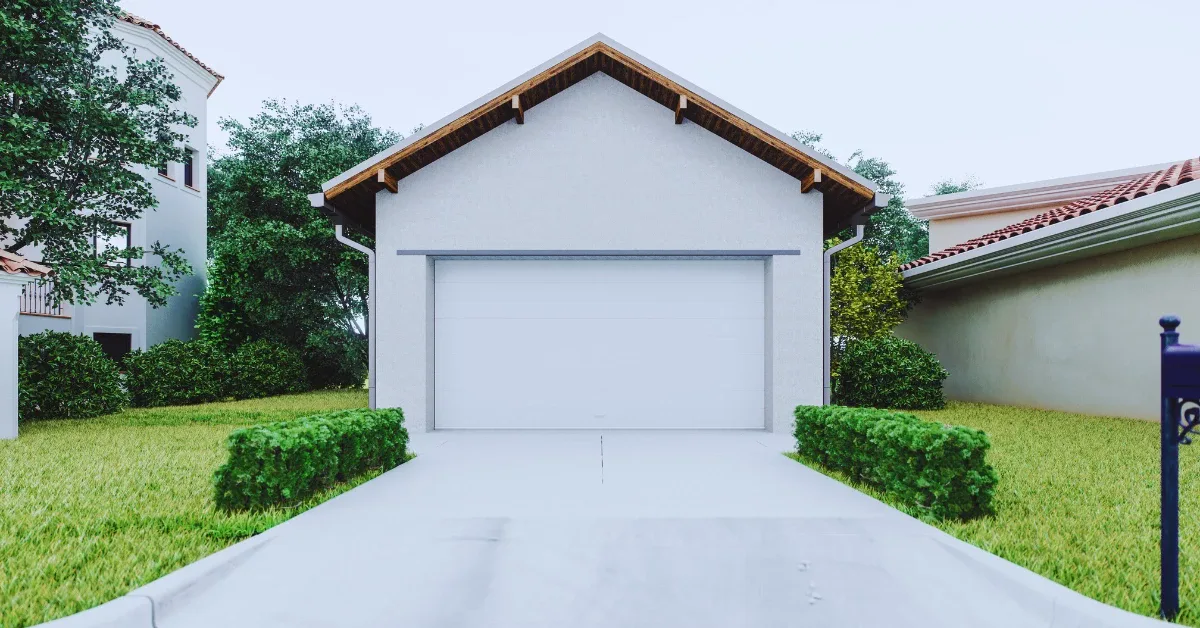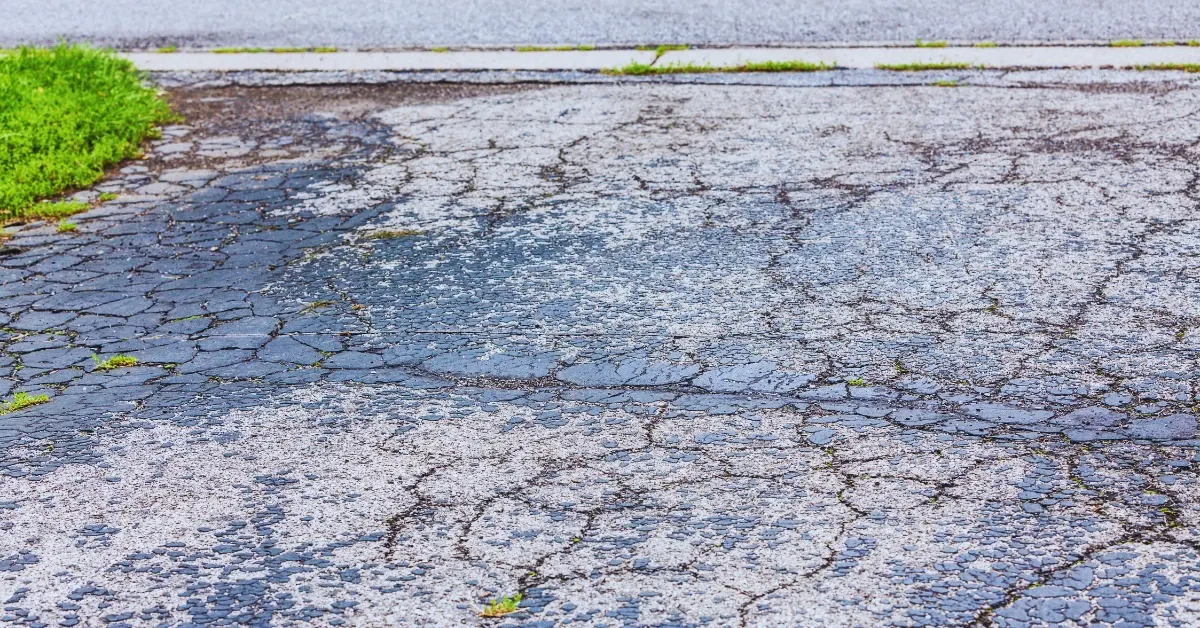Are Landlord Responsible for Driveway? – Rental Awareness
Yes, landlords may be responsible for driveway maintenance and repair as it is considered part of the rental property. This includes fixing any cracks, or potholes, and ensuring proper drainage.
Neglecting the driveway can cause accidents and damage to tenants’ vehicles. As a landlord, it’s important to provide a safe and comfortable living environment for your tenants. This includes not only the interior of the rented space but also the exterior such as the driveway.
Failing to maintain the driveway can lead to tenant complaints and even legal issues if it causes harm to tenants or their property. Therefore, landlords must take responsibility for keeping the driveway in good condition.
This also ensures that the rental property remains attractive to potential tenants, enhancing its value and increasing the likelihood of keeping it occupied with minimal vacancy periods.

The Legal Landscape Regarding Driveway Maintenance And Repair

Discussion On The Landlord’S Legal Responsibilities For Maintaining And Repairing A Rental Property
As a landlord, it is important to understand your legal responsibilities for maintaining and repairing a rental property.
This includes any driveways that are part of the rental property. Here are the key points regarding the landlord’s legal responsibilities for driveway maintenance and repair:
- The landlord is generally responsible for maintaining the driveway and ensuring that it is safe for tenants to use.
- The landlord must repair any damage to the driveway that is caused by normal wear and tear or that is a result of the landlord’s neglect.
- If the damage to the driveway is caused by the tenant’s actions or negligence, the tenant may be responsible for the cost of repairs.
The Landlord’S Rights And Obligations Under Local And State Laws
Local and state laws may vary regarding a landlord’s obligations for driveway maintenance and repair.
It is important to research and understand the specific laws in your area. Here are some key points to keep in mind regarding the landlord’s rights and obligations under local and state laws:
- Some states require landlords to maintain the rental property, including the driveway, to a certain standard of safety and livability.
- Landlords may have the right to enter the rental property to inspect and make repairs, but they must provide proper notice to the tenant before doing so.
- Landlords may be able to transfer responsibility for driveway maintenance and repair to tenants through the lease agreement, but they should consult with a lawyer before doing so to ensure that it is legal and enforceable.
Overall, it is important for landlords to understand their legal responsibilities and obligations regarding driveway maintenance and repair.
By staying informed and taking proper action, landlords can ensure the safety and satisfaction of their tenants, while avoiding any legal issues.
Determining The Cause Of Driveway Damage

Exploring Common Causes Of Driveway Damage And Who Is Responsible When It Happens
Driveways are an essential part of any rented property. Tenants and landlords alike are often left questioning who is accountable for damages to the driveway.
Determining who is responsible for driveway damages depends on several factors, including the cause of the damage and the circumstances surrounding it.
Here are some of the most common reasons for driveway damage and who is responsible for repairs.
Identification Of Different Types Of Damages That Can Occur To A Driveway
Driveways are exposed to various weather conditions, natural elements, and daily wear and tear. Different types of driveway damage can occur, such as:
- Cracking: This can happen due to temperature changes or heavy loads.
- Potholes: These can form due to water accumulation in one spot or erosion of the pavement.
- Drainage issues: When water isn’t drained away from the driveway correctly, it can cause damage.
Discussion Of Whether Tenant’S Actions May Be Responsible For Certain Types Of Driveway Damages
Sometimes, tenants’ actions can cause driveway damage. For example:
- Improper parking: If tenants park heavy vehicles on the driveway, it can cause significant damage over time.
- Oil leaks: Oil that leaks from a tenant’s vehicle can damage the driveway and require repairs.
In such cases, the tenant is responsible for the repairs, and they must cover the cost of fixing the damage they caused.
When it comes to determining who is responsible for damages to a driveway, it’s essential to examine the cause of the damage and the circumstances surrounding it.
Whether you’re a landlord or a tenant, make sure you’re aware of your responsibilities when it comes to driveway repairs to avoid any disputes down the line.
Tips And Strategies For Keeping Your Driveway In Good Condition
Landlords have a responsibility to keep their rental property in good condition, and that includes maintaining the driveway.
A well-maintained driveway not only enhances a property’s curb appeal but also prolongs its life and prevents costly repairs in the future.
Here are some tips and strategies that landlords can use to keep their driveway in good condition.
Simple Steps Landlords Can Take To Prevent Driveway Damage And Prolong Its Life:
- Ensure adequate drainage: Water is a significant cause of driveway damage. To prevent standing water from pooling on the driveway, ensure that it slopes away from the house and towards the street. Clean out gutters and downspouts regularly to prevent them from draining onto the driveway.
- Avoid heavy vehicles: Heavy trucks and machinery can cause extensive damage to driveways. Encourage tenants not to park large vehicles or heavy equipment on the driveway, as they can crack the surface or even cause severe structural damage over time.
- Keep the surface clean: Regularly sweep and clean the driveway to remove debris and prevent stains. Organic materials, such as leaves and weeds, can break down and damage the surface. If the driveway is stained, use a pressure washer, or a chemical cleaner to remove the stains.
Advice On Effective Maintenance Strategies, Including Seal Coating And Crack Filling:
- Seal coating: Seal coating provides a protective layer on the driveway’s surface, preventing damage from UV rays, water, and oil spills. Apply seal coating at least once every two years to keep the driveway looking fresh and new.
- Crack filling: Cracks on the driveway not only look unsightly but can cause significant damage if left untreated. Fill cracks with a commercial-grade crack filler or patch compound to prevent water from penetrating the surface and causing further damage.
Suggested Best Practices For Responding To Driveway Damage And Keeping Tenants Happy:
- Respond quickly: If tenants report driveway damage, respond quickly to inspect and repair the damage. Delaying repairs can cause further damage, putting the tenants’ safety at risk, and costing more money to fix.
- Communicate with tenants: Keep tenants informed about the driveway maintenance schedule and the expected date of repairs. Clear communication helps the tenants prepare for any inconvenience and shows that you are proactive in maintaining the property.
- Address tenant concerns: If tenants are complaining about the driveway’s condition, listen to their concerns and address them promptly. If the driveway is causing safety concerns, take the necessary steps to repair or replace it to prevent any accidents.
By following these tips and strategies, landlords can prevent driveway damage, prolong its life, and keep tenants happy.
A well-maintained driveway reflects positively on the property and ensures that tenants are happy and satisfied.
Frequently Asked Questions For Are Landlords Responsible For Driveway
Who Is Responsible For Maintaining The Driveway?
The landlord is responsible for maintaining the driveway unless stated otherwise in the lease agreement.
What If The Driveway Damage Was Caused By The Tenant’S Actions?
If the tenant caused the damage, they are usually responsible for the cost of repairs.
Can A Landlord Charge A Tenant For Driveway Repairs?
Yes, a landlord can charge a tenant for damages caused to the driveway beyond normal wear and tear.
What If The Lease Agreement Is Unclear About Driveway Maintenance?
If the lease agreement is unclear, it’s best to communicate with the landlord to clarify each party’s responsibilities.
Conclusion
From what we have discussed in this post, it is evident that determining the liability of a landlord for a driveway largely depends on the terms stated in the lease agreement and the nature of the damage.
If the lease agreement explicitly states that the landlord is responsible for all repairs and maintenance of the driveway, then the landlord would be held liable.
However, if the damage results from the tenant’s negligence or intentional actions, then they would be responsible for the repairs.
It is essential for both landlords and tenants to communicate effectively and understand their obligations before signing a lease agreement.
Ultimately, clarifying expectations and addressing concerns through proper channels can help establish a peaceful and mutually beneficial tenancy.
Thank you for reading this post, and we hope it has equipped you with the knowledge to handle any driveway-related issues that might arise in the future.